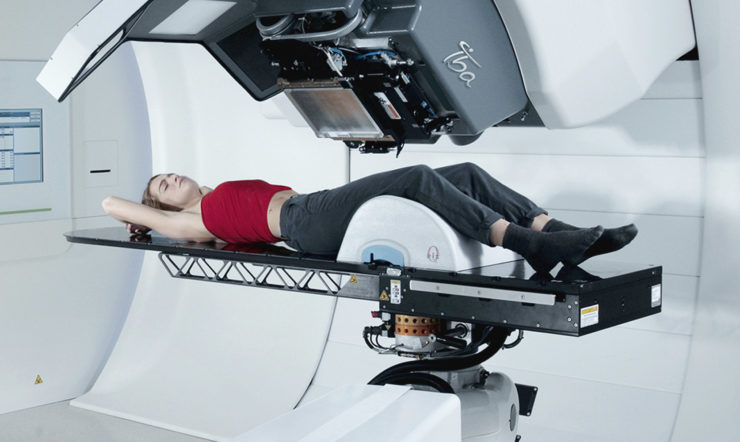“Before this partnership we would typically only passively engage with users who consume our products and services. But this co-sell model allows us to jointly sell both Canonical and Microsoft solutions, which is helping us connect to many more enterprises and sales cycles – and that is certain to yield more results over time.”
Alex Gallagher, VP of Cloud Alliances at Canonical, is reflecting on the co-sell model his company launched with Microsoft in 2019 to better target businesses and build upon the seamless Ubuntu experience both companies have created on Azure.
As one of the largest open-source Linux distributions, Ubuntu has always been a popular choice for developers. With the public cloud now a dominant force across all industries, more and more businesses are choosing to migrate to Azure through Ubuntu – creating an opportunity for Canonical to provide specific value-added services to enterprise customers that would offer the best of both platforms.
“When we hit the public clouds, we hit the ground running,” says Gallagher.
“Now we make up around 70% of the Linux footprint on all hyper scale clouds. And by collaborating with Microsoft, we can provide customers with the infrastructure of Azure and the more comprehensive security and compliance features of Ubuntu Pro – all in a simple package that’s perfect for public-cloud usage.”
Becoming a mainstream operating system for the cloud
Founded in 2004, Canonical is a UK-based private company that was created alongside Ubuntu to help the platform reach a wider market and offer commercial support to their customers. With a renowned ecosystem of tools and multiple applications into different environments – such as mainframes, containers, IoT and robotics – Ubuntu has grown to become one of the most popular Linux distributions in the world today.
“Developers have always loved Ubuntu because it can be used everywhere, in particular in the public cloud” says Thibaut Rouffineau, VP of Marketing at Canonical. “But we wanted to go beyond that and make sure we are the Linux that any organization uses when moving to the public cloud.
“Our answer was to focus on the advanced offerings of Ubuntu Pro. Take something developers love and make it something they will love even more when it goes into an enterprise estate.”
As a fully open-source product, Ubuntu has quickly become a dominant force in the cloud as a platform that developers can simply download and use any way they like. It was a core value Canonical was keen not to break and instead enhance with Ubuntu Pro – by packaging up a range of additional components as a service that can be activated through the Azure marketplace on an hourly basis.
“When you run Ubuntu at a massive scale, you can start to see challenges with system management, security and even general support,” explains Gallagher. “As our customers offer more SLAs, this kind of product support becomes incredibly important for them and that was the idea behind Pro – bringing our value-added services into a neat, tight package.”
Now, instead of customers establishing contracts with Azure and Ubuntu separately, Canonical and Microsoft worked together to better service their customers’ enterprise needs. A collaboration that would help ensure a seamless integration between Ubuntu and Azure – from billing and security, to managing virtual machines and AKS (Azure Kubernetes Service).
“It’s an all-in-one solution that offers a range of tools to help support scale, compliance, security, and internal governance,” he adds. “All without the traditional cloud-software licenses you would normally have outside the marketplace that might slow you down.
“Plus, you have instant access to all these features without committing to a full year upfront, and these businesses can still innovate quickly because they purchase by the hour.”
A technical collaboration to benefit developers
“Although we’d worked together in the past as an engineering partnership, we started properly co-selling with Microsoft in September 2019,” recalls Gallagher, as he explains how the Microsoft partnership has evolved to help drive business for both companies.
“The Canonical way of doing things is very engineering centric – you build the greatest product and they will come. And that does work to a certain extent, but equally it doesn’t scale well with partners,” he says.
“We needed a way to reposition our business value – focus Ubuntu Pro on keeping our promise of a developer friendly, regularly updated and maintained Linux, while also increasing the maintenance and operations values of an enterprise Linux. No compliance headaches, 24/7 support, and complete open-source security.”
This new approach has also encouraged Canonical and Microsoft to develop their partnership in support of organizations switching their workloads to AKS, with both partners working together to offer a combined Ubuntu experience in the cloud-native domain.
“We have multiple ways of deploying Kubernetes in the data center,” Gallagher says. “And by matching the operations of AKS and Azure Arc, we can provide a nice hybrid approach for companies that want to use both cloud and on-premise servers.”
“Ubuntu is used as the base of Kubernetes,” adds Rouffineau. “So we always have a strong advantage of knowing that when a new version of Kubernetes is released it will be tested on Ubuntu by default. It’s a great edge that offers reassurance to our customers and makes sure both companies can benefit from a financial standpoint.”
A rewarding partnership for everyone
Now a year into this partnership, the benefits are being seen from both sides. Microsoft has more Ubuntu customers migrating to Azure and becoming part of their hybrid-cloud offering, and Canonical has an effective way to scale up and engage with more enterprise-level customers.
And the metrics speak for themselves. Over the last year Canonical has shot to the top of the Azure Consumed Revenue (ACR) in the US, the top for Azure customer ads and even the top driver of new customer revenue – making them the first Microsoft partner to win all three of these coveted awards. A huge achievement for both companies and a big step towards Gallagher’s goals.
“We have this 10X culture in my side of the business where we want 10 times the number that we achieved last year,” he explains. “Now we’re talking to 10 times the customers – so even with COVID-19 this year, we still believe we can successfully 10X the business.”
For customers too, this partnership offers a wealth of benefits that ensure Ubuntu remains a secure and optimized Linux distribution. And when coupled with the enhanced functionality of Ubuntu Pro, as well as add-on support services for desktop and cloud deployments with Ubuntu Advantage – this is a complete business package that will help any mission critical workloads run smoothly on Azure.
“Some customers want their virtual machines to be available in the long run, especially those who are running software services on traditional workloads” says Rouffineau. “This long-term planning is where you need continuous support, particularly when you have SLAs around a particular piece of software that you can’t afford to go down.
“That’s where Livepatch and our additional support services come in, to help our customers stay compliant with aggressive SLAs. And why when businesses ask their users to choose an operating system – they’re choosing Ubuntu.”
Continuing to invest in an open-source future
As Canonical now look to the future, the company is still keen to continue investing in new opportunities for the partnership and help create a better user experience for Ubuntu and Ubuntu Pro on Azure. A focus that Gallagher thinks can add even more value to both Microsoft and the end user.
“One of the things we’ve been very focused on is integrating natively into Azure tools and services that people use to manage virtual machines,” he says. “Update Manager, Security Center, logging in, monitoring – we want Ubuntu Pro to be very aware of those tools and feel like an extension of them.”
With both companies sharing a joint vision that open source in the cloud is the future of software development, it remains clear that this partnership will continue to benefit each side and help drive innovation to keep both Ubuntu and Azure in the public eye.
“With Microsoft we can work together without competing,” says Rouffineau in summary. “Which means we can continue to scale while maintaining the community that started Ubuntu, as well as the open source ethos that comes with it.”


























